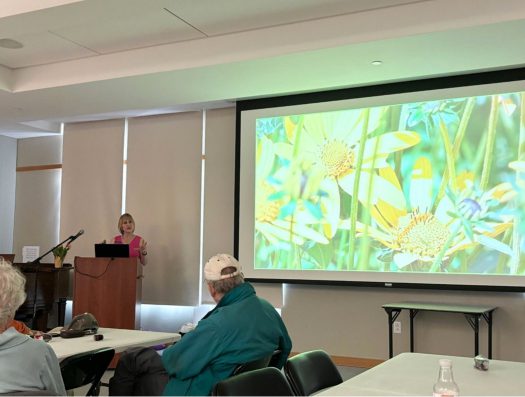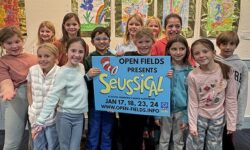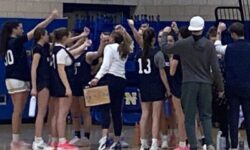By Madison Butkus
Hometown Weekly Reporter
The Needham Council on Aging (COA) welcomed Joy Marzolf from The Joys of Nature to talk about our essential pollinators that can be found throughout New England. COA members gathered together at The Center at the Heights (CATH) to learn about these pollinators' important role that they play with our native plants.
When many of us hear the word “pollinators,” naturally we think of bees. Throughout this presentation, Marzolf was able to inform us that butterflies, beetles, birds, and other insects all provide essential pollinator services while visiting our orchards, backyard gardens, and many other flowering trees and plants.
“It is amazing at how much we don’t know about our pollinators,” Marzolf stated, “so hopefully there will be something new that you learn today. One of my favorite things about these pollinators is that they help us. Which is great for all of us. The best part though is that they do it for free! Free is always awesome. And of course we need them because our plants need them as well. Many fruits and vegetables require or just benefit from insect pollination. It is pretty important.”
At the start of this presentation, Marzolf went over some of the basics when it comes to pollination, like the parts of a flower and cross-pollination. She described the cross-pollination of an apple tree as her example, stating that first and foremost, the pollen from apple blossom stamens stick to the body of a bee as it collects nectar for food. The bee then travels to another apple tree to feed on more nectar, laden with pollen. This pollen is further transferred to a pistol in another tree’s blossom, which fertilizes an ovule and finally grows into an apple.
Marzolf further discussed the numerous species that are pollinators, including the over 130 different backyard bee species (which is only 3% of all bee species in North America), butterflies, moths, flys, hummingbirds, and more. She additionally showed an array of videos that included insects gathering pollen from flowers and plants. Through this, attendees were able to see up close how the process goes and how it happens within real life.
No matter if COA members came into this presentation knowing a lot, a little, or nothing at all about pollinators, it can be said with ease that Marzolf was able to teach some new-found knowledge about this incredible process and all of these species that are included within it. Whether you are a lover of insects or not, they are of huge importance within our ecosystem and very much needed in order for us to eat the foods that we love.

























